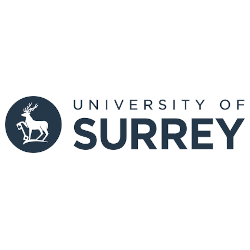
19 Dec PhD – Unveiling the Black Box of the Human Mind: Neurocognitive Mechanisms of Knowledge Acquisition in Toddlerhood
Unveiling the Black Box of the Human Mind:
Neurocognitive Mechanisms of Knowledge Acquisition in Toddlerhood
Summary
This longitudinal neuroimaging project will employ functional Near-Infrared Spectroscopy (fNIRS) to examine the functional organization of the frontoparietal network and functional connectivity within these regions over a two year span, from ages 1 to 3, in typically developing children. Its goal is to offer insights into the neurocognitive mechanisms involved in the development of symbolic numerical knowledge, examining its relationship with non symbolic numerical knowledge, language, and environmental factors during early development. This project will also investigate children’s parents’ brain responses to numerical processing that will provide intergenerational insights about parent-child neural similarities. Additionally, the study will investigate various linguistic, spatial, and cognitive processes to understand domain-general processes that contribute to numerical knowledge acquisition. For further details, please refer to the literature listed below.
Supervisory team
![]()
![]()
Studentship
This studentship provides an opportunity to join a multidisciplinary team, including developmental psychologists, neuroscientists, and computer scientists, in a supportive environment. The successful applicant will become a part of the Learning Brain Lab (https://www.surrey.ac.uk/learning-brain-lab) and the Surrey Baby Lab (https://www.surrey.ac.uk/surrey-baby-lab). This PhD project, commencing on 1st October 2024, is funded by the University of Surrey and ESRC. Note that this competitively funded studentship is open to both UK and international students.
Application deadline and documents
Please send your CV and a one-page cover letter to the email addresses provided above by 5 pm (GMT) on 2nd January 2024. We will shortlist the most competitive applicants for an interview in the week of 8th January. Feel free to submit additional documents, such as transcripts, undergraduate and master’s degrees, etc., to further support your application.
Eligibility
We invite enthusiastic applicants for a fully funded PhD studentship in Psychology at tile University of Surrey. We are seeking candidates with backgrounds in psychology, cognitive science, neuroscience, 0r related areas. Please note that you must have at least one of your undergraduate or master’s degrees in a relevant field.
Previous experience in research in early development, using fNIRS or other neuroimaging methods, programming, connectivity analysis, multivariate pattern analysis, and advanced statistics will be advantageous. Additionally, effective written and oral communication skills, initiative, good interpersonal skills, and a passion to learn and impact society will be advantageous. We will consider equality, diversity, and inclusivity in our selection process.
English language requirements
If English is not your first language, an IELTS Academic score of 6.5 or above (or equivalent), with a score of 6 in each individual category, is required (see here: https://www.surrey.ac.uk./postgraduate/psychology-phd). Note that you can still apply even if you do not have your English language certificate in hand. If your application is successful, you are required to submit your certificate before commencing your PhD.
Relevant references
- Barreto, C., & Soltanlou, M. (2022). Functional near-infrared spectroscopy as a tool to assess brain activity in educational settings: An introduction for educational researchers. South African Journal of Childhood Education, 12(1), 1-10.
- Emerson, R. W., & Cantlon, J. F. (2015). Continuity and change in children’s longitudinal neural responses to numbers. Developmental science, 18(2), 314-326.
- Edwards, L. A., Wagner, J. B., Simon, C. E., & Hyde, D. C. (2016). Functional brain organization for number processing in pre-verbal infants. Developmental science, 19(5), 757-769.
- Fehlbaum, L. V., Peters, L., Dimanova, P., Roell, M., Borbas, R., Ansari. D., & Raschle, N. M. (2022). Mother-child similarity in brain morphology: A comparison of structural characteristics of the brain’s reading network. Developmental Cognitive Neuroscience, 53, 101058.
- Feigenson, L, Dehaene, S., & Spelke, E. (2004). Core systems of number. Trends in cognitive sciences, 8(7}, 307-314.
- Hyde, D. C. (2021). The emergence of a brain network. for numerical thinking. Child Development Perspectives, 15(3), 168-175.


Sorry, the comment form is closed at this time.